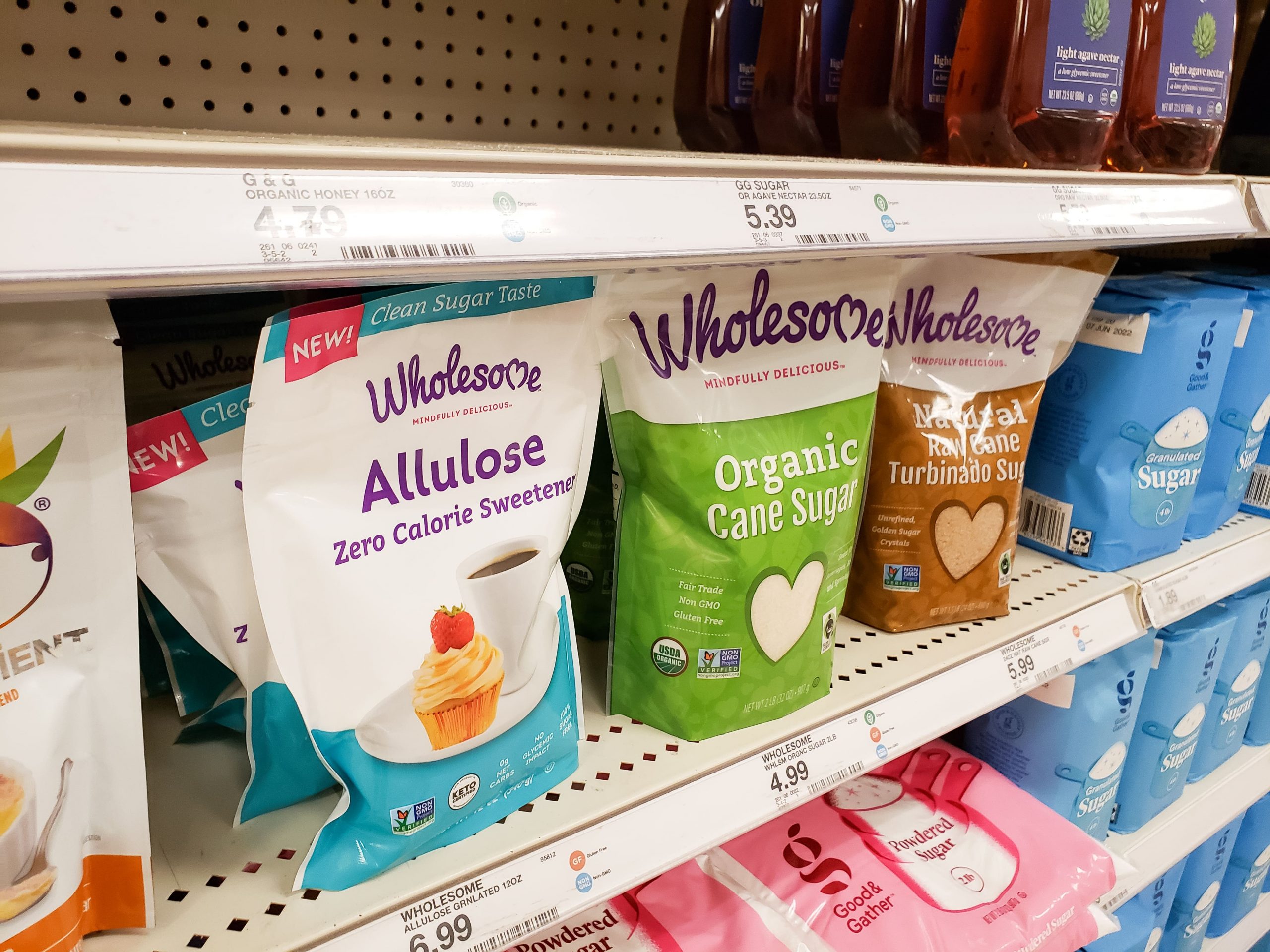Allulose is a new sweetener in the market that has attracted a lot of buzzes today. Its proponents suggest that its texture and taste is more like the normal sugar, but has low amounts of calories and carbs. You may wonder, is allulose safe?
Besides agape syrup and the rest, allulose is another sweetener in the market today. This sweetener is garnering a lot of buzz courtesy of its proponents who claim that it works more like normal sugar yet it has minimal carbohydrates and calories. In fact, allulose is claimed to help with fat d weight loss. Some studies even link it to the good health of the heart. Yet, as is the case with many sweeteners, there are concerns around the use of this sweetener, and you may want to know whether using it is safe. This article takes care of these concerns.
What is allulose?
The first thing you want to know is what allulose is before you can get to its nitty-gritty. Allulose is a new sweeter in the market, categorized in the ‘rare sugar’ class since in nature, you only find it in a few foods such as figs, wheat, and raisins. Allulose is often called D-psicose.
When examined through the electron microscope, the crystals of allulose are found to have the same chemical formula as what fructose has, only that the molecules are differently arranged. Like glucose and fructose, allulose is a monosaccharide, meaning it’s a single sugar. Table sugar, on the other hand, contains two sugars, glucose, and sucrose, hence a disaccharide. The different molecular arrangements of the alulose molecules ensure that their breakdown differs from that of fructose. In fact, as you take allulose, the body gets rid of 70-85% of it as urine. This means that it is not used as fuel. All this happens courtesy of the different molecular arrangements.
The gut microbiota often digests sugar, and this may result in bloating gassing, and other digestive issues. However, with allulose, these are rare as the sugar is resistant to the fermentation by the gut microbiota. Some studies even claim that allulose sweetener may help lower the risk of most chronic illnesses as it fights inflammation. What’s certainly beyond doubt is that this sweeter offers bout 1/10 of calories you would get from table sugar, as it gives 0.2-0.4 calories for every gram. This hardly raises blood sugar levels, which is why diabetics now use it. even so, its texture and how sweet it is are more like table sugar or erythritol, which is another sweetener in the market.
How can allulose be used?
Using allulose is easy. Many puddings, sauces, snack bars, and candies now use this sweetener. If you do dairy frozen products and yogurt, you are likely consuming allulose as the sweetener is incorporated in them. Cookies, muffins, and cakes are all baked using allulose. Still, you can use its granulated form to cook or bake at home.
Is allulose sweetener safe?
Since the allulose sweetener offers about a tenth of carbs and calories as what you may get from the same serving of the normal table sugar, allulose sweetener is generally deemed safe. In fact, in the USA, the sweetener is legal and can be used to prepare food products, only that it is expensive and may cost twice as much as other sweeteners like erythritol. Europe has not yet legalized allulose. Provided its use is kept moderate, this sweetener is safe, even for a long-time. However, some people complain about diarrhea, gassing, and bloating following the use of allulose sweeteners. If you feel uncomfortable about using it, you can try other sweeteners also approved by FDA and deemed safe. Such include saccharin, aspartame, sucralose, and stevia.
Potential health benefits of allulose
After knowing what allulose is, its safety, the potential side effects, and alternatives, you might also want to know the health benefits linked to this sweetener. Sincerely speaking, the sweetener has many health benefits studies link it with. Some of these include;
May fight inflammation
Our bodies defend themselves from infection through inflammation, and thus inflammation can be said to be a defense mechanism. However, chronic inflammation is riskier and less helpful to the body, as it leads to negative autoimmune symptoms. In many cases, inflammation is linked to acute and chronic illnesses such as diabetes type 2, arthritis, cancer, and heart disease. Recent studies suggest that using allulose sweeteners could help with inflammation. The mechanism for this has not been established, but the same studies suggest that the sweeter works with the gut microbiota fight inflammation in the body.
It May help keep blood sugar levels stable
Studies appreciate allulose and suggest that it can help keep the blood sugar levels stable. This is primarily because allulose, as a sweetener, has a low glycemic index. The implication of this is that when the sweetener is taken, it is less likely to cause sugar spikes in the body. Another suggestion for blood sugar control is that when you take allulose as you other foods, the sweetener offers the bata cells in the pancreas protection, resulting in suppressed sugar levels some 30-60mintes after eating.
May back weight loss
Since weight loss is becoming a concern for many today, you may want to switch table sugar with allulose to enhance your weight loss quest. Allulose contains 0.2-0.4 calories/g, which is a tenth of what table sugar offers. By cutting down your calorie consumption, you are on the way to succeeding in losing weight. This is even better if you couple it with a healthy diet and regular workouts.
May help with fat loss
Allulose could also help with fat loss besides weight loss. Several studies involving rodents have shown that when mice and rats are given a high-sugar diet alongside allulose, they lose fats. Still, this needs more studies as most of these have only considered animals.
May enhance liver health
The liver is as important as the heart and kidney, and its protection should be a key concern. Some research suggests that taking allulose supplements may help reduce the accumulation of triglycerides and cholesterol in the liver. Fatty liver disease is caused by excessive fat absorption into the liver and often develops into cirrhosis. Research is underway to prove that by decreasing fat absorption, the liver is protected from fatty liver disease.
Conclusion
Allulose is a new sweetener in the market that you might want to try. Although it is 70% sweet as sugar and has a similar texture, it only contains a few carbs and calories. This article has discussed all you need to know about allulose. As long as you keep its consumption moderate, this sweetener is deemed safe for you.
- Chickpeas vs. Garbanzo Beans: What’s the Difference? - April 19, 2024
- How to Manage or Improve Anxiety - September 21, 2023
- The birth of a company - July 29, 2023







